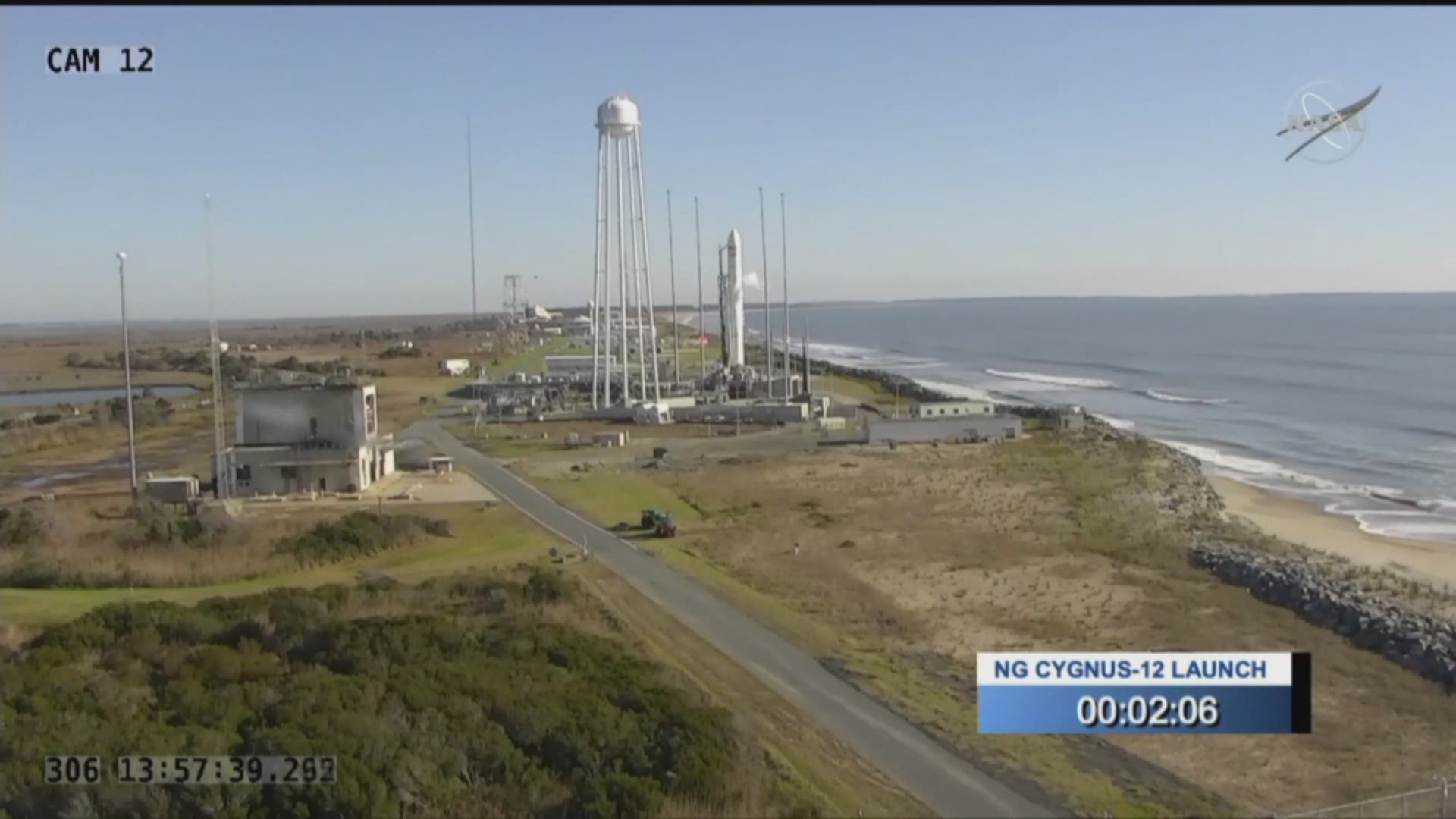WALLOPS ISLAND, Va. — The countdown is on!
At 9:59 a.m. on Saturday, November 2, NASA commercial cargo provider Northrop Grumman launched its next resupply mission to the International Space Station from Wallops Flight Facility in Virginia.
The rocket was loaded with around 8,200 pounds of research, crew supplies, and hardware. Northrop Grumman’s 12th commercial resupply mission will launch on the company’s Cygnus cargo spacecraft on an Antares rocket.
NASA said the Cygnus spacecraft, dubbed the SS Alan Bean, is named after the late Apollo and Skylab astronaut who died on May 26, 2018, at the age of 86.
Wallops Flight Facility said the weather conditions remain favorable.
RELATED: FORECAST: Cool air sticks around
Watch the full launch below:
“With today’s launch, we celebrate the beginning of the 20th year of continuous human presence living aboard the International Space Station and the strong partnerships that have shaped a promising future for space flight in Virginia,” said Governor Northam. “The investments we are making in the MARS facility will continue to position our Commonwealth as a leader in the growing aerospace industry, support critical life sciences research, and ensure that we remain a world-class center for space exploration and commerce for years to come.”
Governor Ralph Northam said scientific investigations that launched on Cygnus are part of commercial and academic payloads across a variety of disciplines, including:
- 3D-printed carbon fiber materials to be tested in the extreme environment of space, which could inform technology for medically implantable devices used on Earth for therapeutic drug delivery;
- a Zero-G Oven, designed to provide the psychological and physiological benefits of fresh-baked food for crew members on long-duration space missions;
- rodent research on microgravity as a disruptor of the 12-hour circadian clock, which will advance research into liver disease and could provide insights into genetic regulation and signaling pathways;
- the Made in Space Recycler to test systems needed to reprocess plastic into 3D printing filament in the microgravity environment of the ISS, which has implications for space conservation and deep space missions;
- the AstroRad Vest to protect astronauts from exposure to space radiation; and
- several items to support the crew of the ISS, including a replacement treadmill, waste management system hardware, an airlock hatch protection device, an oxygen tank, and cryochiller to support cold stowage capability.

